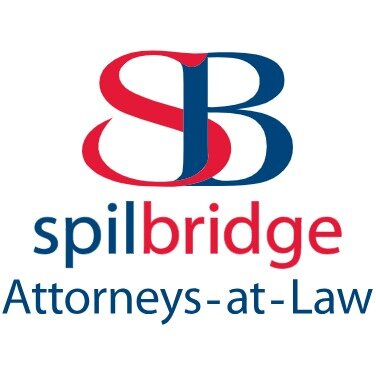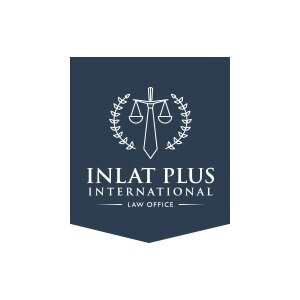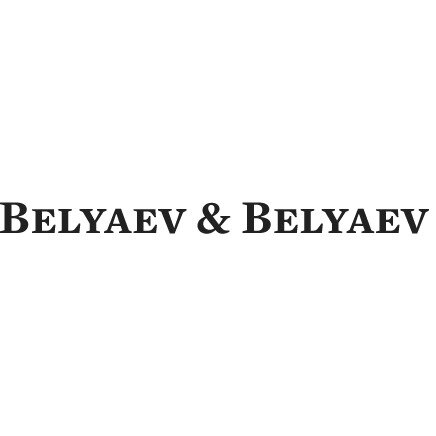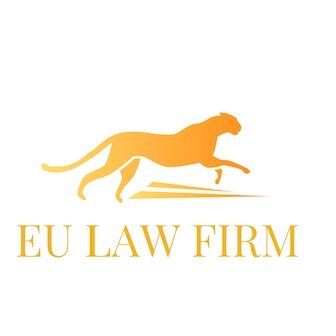Best ESG Advisory & Compliance Lawyers in Latvia
Share your needs with us, get contacted by law firms.
Free. Takes 2 min.
Or refine your search by selecting a city:
List of the best lawyers in Latvia
About ESG Advisory & Compliance Law in Latvia
Environmental, Social, and Governance (ESG) Advisory & Compliance refers to the legal and practical frameworks that guide how organizations operate in an environmentally sustainable, socially responsible, and ethically governed manner. In Latvia, ESG advisory and compliance services are increasingly important as businesses must align with local and European Union (EU) regulations, stakeholder expectations, and best practices for transparency and sustainability. Ensuring compliance not only mitigates risks but also opens new opportunities for growth, investment, and reputation enhancement.
Why You May Need a Lawyer
Navigating ESG rules and requirements can be complex, especially as regulations in Latvia continue to evolve. You may require legal guidance in situations such as the following:
- Launching a new business or project subject to environmental or social regulations
- Seeking investment from stakeholders who require ESG reporting
- Preparing for audits, inspections, or regulatory reviews
- Responding to allegations of ESG non-compliance
- Drafting or updating internal policies and procedures to reflect ESG obligations
- Assessing the impact of European Union directives and regulations on Latvian operations
- Participating in public procurement or accessing green financing and subsidies
- Managing reporting obligations for sustainability or corporate responsibility disclosures
ESG lawyers have the expertise to analyze your specific industry, assess risks, and provide tailored advice to support compliance and strategic advantage.
Local Laws Overview
Latvia’s ESG legal landscape is shaped by national legislation and binding EU regulations. Key elements include:
- Environmental Compliance - Businesses must adhere to laws regulating emissions, waste management, energy efficiency, and the use of natural resources. The Environmental Protection Law and Law on Pollution are fundamental in this area.
- Social Responsibility - Labor laws, anti-discrimination acts, and health and safety regulations ensure fair work conditions and human rights protection. Non-compliance can result in significant legal and reputational risks.
- Governance Standards - Corporate governance laws emphasize transparency, anti-corruption measures, strong internal controls, and stakeholder engagement. Companies are expected to follow the Commercial Law and the Law on the Prevention of Money Laundering and Terrorism Financing.
- EU ESG Disclosure - As an EU member, Latvia is party to the Corporate Sustainability Reporting Directive (CSRD), Non-Financial Reporting Directive (NFRD), and EU Taxonomy Regulation, which set requirements for sustainability disclosures and reporting standards.
- Public Procurement and Subsidies - ESG criteria are increasingly embedded in public tenders and access to government or EU financing.
Staying compliant with these laws is crucial for continued business operations, securing investments, and maintaining public trust.
Frequently Asked Questions
What does ESG compliance mean for my business in Latvia?
ESG compliance involves meeting legal and ethical standards in environmental protection, social responsibility, and good corporate governance. It means aligning your business operations with Latvian and European regulations related to these areas.
Are small and medium-sized enterprises also subject to ESG regulations in Latvia?
Yes, while the scope may differ, many Latvian laws and some EU regulations also apply to small and medium-sized enterprises, especially concerning environmental and labor standards. Some reporting rules may primarily affect larger companies.
What are the main ESG reporting obligations for companies in Latvia?
Depending on company size and sector, many businesses must provide annual non-financial disclosures about environmental impact, employee matters, human rights, anti-corruption efforts, and diversity policies, as required under EU directives and local law.
How do EU regulations impact ESG compliance in Latvia?
Latvia, as an EU member, must implement EU regulations and directives related to ESG. This includes rules on sustainability reporting, climate targets, and sustainable finance, which set minimum standards and sometimes exceed local legal requirements.
What are the consequences of failing to comply with ESG laws in Latvia?
Non-compliance may result in financial penalties, legal liabilities, loss of business licenses, exclusion from public procurement, loss of investors, and reputational damage.
How can companies keep up with changing ESG regulations?
Regularly monitoring updates from governmental bodies, consulting legal professionals, and participating in ESG training or industry associations are effective strategies to remain compliant.
Is ESG compliance mandatory or voluntary in Latvia?
Certain aspects, especially those relating to environmental impact, employment, and anti-corruption are mandatory. Voluntary measures, such as adopting additional standards or certifications, can also offer advantages.
What industries or sectors are most affected by ESG compliance in Latvia?
ESG compliance is increasingly important across all sectors, but is especially critical for energy, manufacturing, financial services, agriculture, and construction industries.
How can legal advisors help with ESG compliance?
Lawyers analyze your business in the context of legal requirements, help implement internal policies, prepare necessary documentation, assist with reporting and disclosures, and represent your interests before regulatory authorities.
What steps should a company take to develop a strong ESG strategy?
A strong ESG strategy involves assessing current risks and compliance gaps, defining measurable goals, developing clear policies, training staff, implementing monitoring systems, and regularly reviewing progress with the help of legal and industry experts.
Additional Resources
Below are some of the most relevant resources and organizations for ESG Advisory & Compliance in Latvia:
- Ministry of Environmental Protection and Regional Development of the Republic of Latvia - Oversees environmental regulations and policy
- State Labour Inspectorate - Ensures compliance with employment and labor laws
- Latvian Financial and Capital Market Commission - Regulates financial sector ESG compliance
- Latvian Environment, Geology and Meteorology Centre - Offers environmental data and guidance
- Investment and Development Agency of Latvia (LIAA) - Provides support for responsible business and investment in line with ESG principles
- Latvian Chamber of Commerce and Industry - Offers information and support on ESG and sustainability for businesses
- European Commission Representation in Latvia - Information on EU-wide ESG initiatives and regulations
Next Steps
If you need legal assistance with ESG Advisory & Compliance in Latvia, consider the following steps:
- Assess your business or organization’s current ESG compliance status and identify potential gaps
- Gather relevant documentation, including existing policies, operational guidelines, and previous reports
- Research and identify experienced ESG lawyers or legal firms specializing in sustainability, corporate governance, and compliance
- Contact a legal professional to schedule an initial consultation and discuss your specific needs
- Stay informed about updates in local and EU ESG regulations through reputable organizations and government bodies
- Continuously review and update your company’s ESG policies in consultation with legal and industry experts
Taking these steps will help you navigate the complex ESG regulatory environment in Latvia and ensure your business operations align with both legal requirements and stakeholder expectations.
Lawzana helps you find the best lawyers and law firms in Latvia through a curated and pre-screened list of qualified legal professionals. Our platform offers rankings and detailed profiles of attorneys and law firms, allowing you to compare based on practice areas, including ESG Advisory & Compliance, experience, and client feedback.
Each profile includes a description of the firm's areas of practice, client reviews, team members and partners, year of establishment, spoken languages, office locations, contact information, social media presence, and any published articles or resources. Most firms on our platform speak English and are experienced in both local and international legal matters.
Get a quote from top-rated law firms in Latvia — quickly, securely, and without unnecessary hassle.
Disclaimer:
The information provided on this page is for general informational purposes only and does not constitute legal advice. While we strive to ensure the accuracy and relevance of the content, legal information may change over time, and interpretations of the law can vary. You should always consult with a qualified legal professional for advice specific to your situation.
We disclaim all liability for actions taken or not taken based on the content of this page. If you believe any information is incorrect or outdated, please contact us, and we will review and update it where appropriate.
Browse esg advisory & compliance law firms by city in Latvia
Refine your search by selecting a city.
















